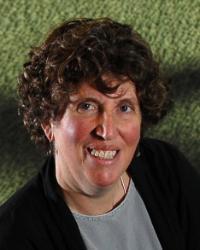There are Rules with a capital R — the federal rules of procedure. Then there are rules with a lower case r, which are more like customs and local conventions. And then there are what Professor Julie Shapiro likes to call italics. These are the rules that one sets for oneself, a moral code.

As she retires after 30 years of teaching family law and civil procedure to Seattle University School of Law students, it's those italics that she hopes her students remember the most.
"From the very beginning of my teaching, I wanted the students to think about what it was going to be like for them to be a lawyer," she said. "For me, in practice, the hardest part of the job was being true to who I was. It was really a moral question, it was about my sense of my own integrity."
Shapiro joined the faculty of University of Puget Sound School of Law in 1991 ( Seattle University acquired the law school two years later) after completing a federal clerkship and practicing law, specializing in civil rights and police misconduct cases in Philadelphia.
Her decade in practice left her wanting a new intellectual challenge and a deeper dive into complicated legal issues at the heart of her cases, Shapiro said. A professor at her alma mater — University of Pennsylvania School of Law — had encouraged her to consider teaching and told her about the faculty opening in Tacoma.
She quickly fell in love with teaching, inspired especially by her work with first-year students.
"My practice experience became important — even the parts that were boring became important — because the students were so hungry to know what it would really be like to be a lawyer," she said. "No one ever told me that in law school because I went to law school where most of the people who taught had never practiced."
Students found plenty to admire in Shapiro's work as a practicing lawyer. She and her legal partners pioneered the use of federal anti-racketeering laws to protect abortion clinics, represented victims of police misconduct, and sought justice for AIDS patients who had suffered discrimination.
She continued her litigation work as a volunteer, even after her teaching career began. She assisted the Northwest Women's Law Center in numerous lesbian and gay family law cases, including In re L.B., which established the rights of de facto parents in the state of Washington, and Andersen v. King County, the case challenging Washington's Defense of Marriage Act.
Still, she said, nothing beats the feeling of watching a student graduate and go on to a fulfilling career in law.
"If they find it rewarding and gratifying, it makes me feel thrilled to have been part of that personal formation," she said.
Melanie Curtice '98, deputy general counsel of Seattle-based health care app 98point6, said the lessons from that first-year civil procedure class in 1995 stay with her to this day.
"At the time, I certainly did not realize that I was learning more than the 'rules of the road,'" she said. "Professor Shapiro chose her words carefully and wisely, a tool finely honed in law practice. In this skillful way, she taught me how to question, how to assess, how to think about what it meant to practice law, and how to understand our profession's impact on those we agree to serve."
To foster a habit of self-reflection, Shapiro created a tradition at the beginning of every school year by asking first-year students to write letters to their future selves, which she held in safekeeping and delivered to their student mailboxes exactly one year later.
Shapiro never read any of them. They weren't for her.
"I really wanted them to think about regularly checking in with who they are, and how what they're doing fits with who they are," she said. "I really want them to understand that taking the time to figure out what they're passionate about is really crucial. And it's not something you do just once, because it can change over time as you see things differently."
